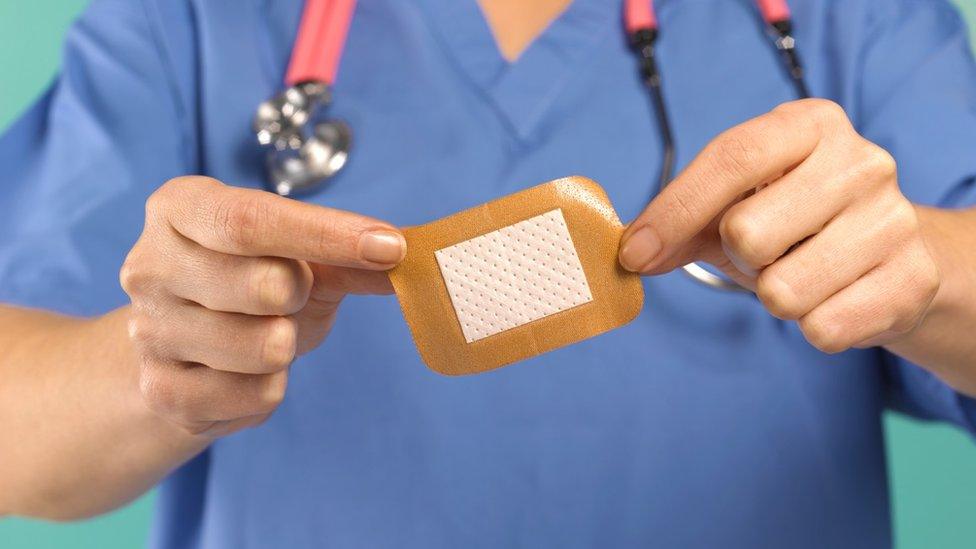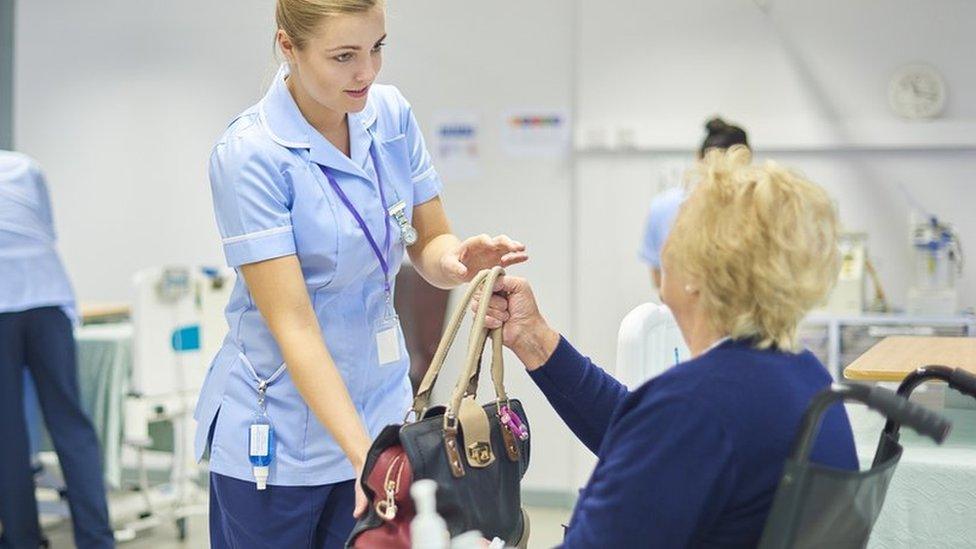Isle of Wight bed blocking cash a 'sticking plaster'
- Published

The money is intended to discharge medically fit patients from St Mary's Hospital and free up beds
Government money released to address bed blocking at a hospital has been described as "a sticking plaster" that will make very little difference.
The Isle of Wight's NHS Trust last week received £2m from a national £500m pot to free up space at St Mary's Hospital.
But cabinet member for adult social care Karl Love said the island needed recurring funding, not one-off payments.
The Department for Health and Social Care has been approached for comment.
The £1,937,811 will fund 10 schemes including additional care home capacity.
It has been split between the Isle of Wight Council and the Hampshire and Isle of Wight Integrated Care Board (ICB).
The trust said part of the money will fund the Bluebell House Residential Care Home as a step down facility, which it estimated would help 70 people.

Karl Love said the island needed recurring funding not one-off payments
But Mr Love, an Independent, said: "It's a sticking plaster over a gaping financial hole.
"Where do they think I'm going to get agency staff from when they are simply maxed out already?
"The Bluebells Care home referred to is due to close in the future and our council is still cutting services because of 13 years of austerity."
Mr Love said St Mary's Hospital needed to "recruit more staff and government have not given us a penny for that"
"It's an appalling government propaganda exercise to make it look like they are helping," he added.
It comes at the end of a two-month long critical incident at St Mary's, which forced the council to spend £1.9m on sending 21 patients to mainland care facilities because of a shortage of adult care places.
In a statement, the Department of Health and Social Care said Hampshire and the Isle of Wight would share £6.1m of recently announced new funding.
The department added its "new urgent and emergency care plan" would reduce waiting times by delivering 5,000 more hospital beds and piloting a new approach to supporting people on discharge.
It said it would also improve how patients receive rehabilitation and physiotherapy, including at home.
"This is on top of an additional £250m to buy beds in the community this winter and our £500m discharge fund, as well as work to boost the social care workforce," the department said.

Follow BBC South on Facebook, external, Twitter, external, or Instagram, external. Send your story ideas to south.newsonline@bbc.co.uk, external.
Related topics
- Published26 January 2023

- Published2 December 2022
